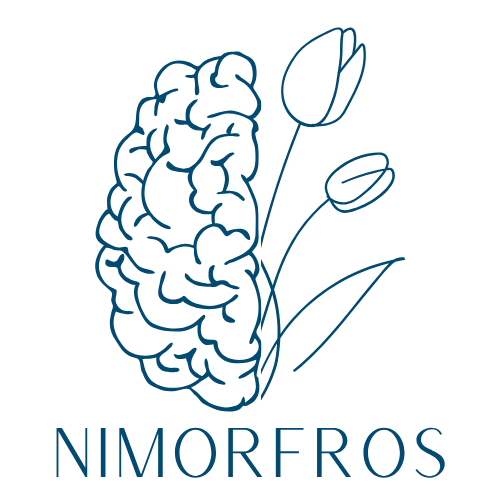Anúncios
The landscape of health technology is undergoing a remarkable transformation that is set to overhaul how we approach healthcare. The integration of advanced technology in health services is not merely a trend; it is a fundamental shift that promises to enhance the quality of care. As we navigate this evolution, understanding its implications is crucial for all stakeholders in the healthcare system.
For patients, health technology offers unprecedented access to information and services, making it easier than ever to manage their health actively. Meanwhile, healthcare providers are experiencing new tools that improve diagnostic accuracy, patient engagement, and operational efficiency. This article explores the future of health technology, including emerging innovations and potential challenges.
From telemedicine to AI-driven diagnostics, the future of health technology encompasses a diverse range of tools and applications. By examining these innovations closely, we can gain insights into how they will shape healthcare delivery in the upcoming years. Let’s explore this evolving field in detail.
Telemedicine: Rapid Adoption and Future Growth
Telemedicine has gained widespread acceptance, especially since the onset of the COVID-19 pandemic. Patients and healthcare providers quickly adapted to remote consultations and digital care. This trend illustrates technology’s critical role in healthcare delivery.
Looking ahead, telemedicine is anticipated to become a mainstay in healthcare, improving accessibility for patients in remote areas. By eliminating geographical barriers, telehealth services foster greater equity in health access. Furthermore, ongoing advancements in web and mobile applications are likely to enhance these services significantly.
Anúncios
Future telemedicine platforms will incorporate advanced features like AI chatbots for initial assessments and symptom checkers. Such innovations will streamline the patient experience and provide timely medical advice. Additionally, integrating wearables with telemedicine could pave the way for continuous patient monitoring.
Healthcare regulations will also evolve to accommodate telemedicine’s expansion. Policymakers must ensure that legal frameworks can support remote care while safeguarding patient privacy and data security. Collaborative efforts among stakeholders will be essential in developing robust telehealth guidelines.
In summary, telemedicine is set to reshape healthcare accessibility and delivery fundamentally. Its persistent growth highlights the need for continuous improvement and adaptation in healthcare practices as technology advances.
Anúncios
Artificial Intelligence: Transforming Diagnostics and Treatment
Artificial Intelligence (AI) represents a major leap forward in health technology, particularly in diagnostics and personalized treatment plans. AI algorithms can analyze vast datasets swiftly, improving diagnosis speed and accuracy.
AI’s predictive capabilities allow for individualized care tailored to each patient’s unique genetic and lifestyle factors. This shift towards personalized medicine enhances treatment effectiveness and can lead to better health outcomes. By leveraging AI, clinicians can make more informed decisions about patient care.
Moreover, AI can optimize administrative tasks, reducing the burden on healthcare providers. Automation of scheduling, billing, and record-keeping enables professionals to focus more on patient care. This not only improves efficiency but also enhances job satisfaction among healthcare staff.
Despite the potential benefits, the integration of AI in healthcare must be handled carefully to address issues such as bias in algorithms and data privacy concerns. Ensuring that AI systems are trained on diverse datasets will be essential for equitable healthcare delivery.
In conclusion, AI’s transformative potential in health technology is undeniable. As AI tools become more sophisticated, they promise to redefine how healthcare is delivered, making it more precise, efficient, and personalized.
Wearable Health Devices: Monitoring Health in Real Time
Wearable health devices have become increasingly popular, allowing individuals to monitor their health in real time. These devices range from fitness trackers to advanced medical wearables that provide critical health data.
As technology advances, these devices will evolve to offer even more sophisticated health monitoring capabilities. Features such as continuous glucose monitoring and heart rate variability analysis are becoming commonplace. This empowers individuals to take proactive steps towards better health management.
Wearables also facilitate timely communication between patients and healthcare providers. Doctors can receive real-time data, enabling personalized interventions and proactive care strategies. This shift from reactive to proactive healthcare can significantly impact chronic disease management.
Nevertheless, challenges remain concerning data privacy and accuracy. Ensuring that compliance measures protect patient data while maintaining device efficiency is crucial for user trust. Moreover, regulatory oversight will be necessary to safeguard against misleading health information.
Ultimately, wearable health devices are set to revolutionize personal health management. As they become more integrated into daily life, they will empower individuals to take charge of their health effectively.
Blockchain Technology: Securing Health Data
Blockchain technology holds promise for enhancing data security and interoperability in healthcare. By providing a decentralized ledger, blockchain can ensure that patient data is secure and easily accessible to authorized providers.
The use of blockchain in health records can transform patient privacy and consent management. Patients can control their information while granting access to healthcare providers as needed. This not only enhances privacy but also streamlines the sharing of critical health information.
Blockchain can also facilitate clinical trials by ensuring data integrity and transparency. Researchers can use blockchain for tracking medications, in turn improving drug development processes and ensuring participant safety. This will lead to more efficient and ethical research endeavors.
Although the potential benefits are substantial, the implementation of blockchain in healthcare faces hurdles, particularly regarding scalability and integration with existing systems. Collaborative efforts from technology firms and healthcare organizations will be necessary to address these challenges.
In essence, blockchain technology is poised to strengthen data security and improve patient autonomy in healthcare. Its successful implementation could redefine how patient data is managed and shared across the health ecosystem.
Personalized Medicine: The Future of Treatment
Personalized medicine enables healthcare to be tailored to the individual characteristics of each patient. This approach uses genetic information, lifestyle factors, and environmental influences to optimize treatment strategies.
The rise of genomic testing has paved the way for targeted therapies based on genetic markers. These innovative treatments offer more effective solutions for conditions that were previously difficult to manage. As research progresses, personalized therapies will become more mainstream.
Moreover, advancements in data analytics and machine learning will support personalized medicine efforts. By analyzing patient data, healthcare providers can identify which treatments are most effective for specific patient populations. This will help reduce trial and error in treatment selection.
Despite its advantages, personalized medicine also poses challenges regarding genetic data management and ethical considerations. Ensuring that patient data is handled respectfully and securely is vital to maintaining trust in this approach.
To sum up, personalized medicine represents a paradigm shift in how treatments are developed and delivered. Its potential to improve health outcomes makes it a vital area of focus for future health technology advancements.
Virtual Reality: Enhancing Patient Experience
Virtual reality (VR) is emerging as a powerful tool in healthcare, enriching patient experiences through immersive environments. VR applications extend from pain management during procedures to mental health treatment.
For example, VR in pain management has shown promise in distracting patients during uncomfortable procedures. By immersing patients in calming, engaging scenarios, anxiety and pain can be effectively minimized. This innovative use of VR can lead to enhanced recovery experiences.
Furthermore, VR has potential applications in training healthcare providers. Immersive simulations allow for hands-on practice in a controlled environment, enhancing skills and confidence. This method promotes a safer learning landscape for healthcare professionals.
However, the integration of VR in healthcare requires careful consideration of accessibility and cost. Ensuring that diverse patient populations can access these technologies will be critical for equitable healthcare delivery. Educating providers on effective VR use will also be essential.
In conclusion, VR technology is set to transform patient experiences and provider training in healthcare. Its ability to create immersive environments offers exciting possibilities for improving care delivery and patient satisfaction.
Conclusion: Embracing the Future of Health Technology
The future of health technology is filled with potential to transform the healthcare landscape fundamentally. From telemedicine to AI, wearable devices, and blockchain, each innovation offers unique benefits and challenges.
As these technologies evolve, collaborative efforts among stakeholders will be necessary to navigate ethical and regulatory considerations. Ensuring that advancements enhance patient care and maintain trust will be paramount.
Health technology is not just reshaping healthcare; it is empowering patients and providers alike. By leveraging these innovations, we can build a better health system that prioritizes accessibility, personalization, and security.
Moving forward, embracing these technological advancements will be essential for all stakeholders in the healthcare system. Understanding and adapting to these changes will foster a healthier future for everyone.
Ultimately, the ongoing evolution of health technology promises exciting opportunities to improve healthcare delivery, making it more efficient, equitable, and effective for the generations to come.



